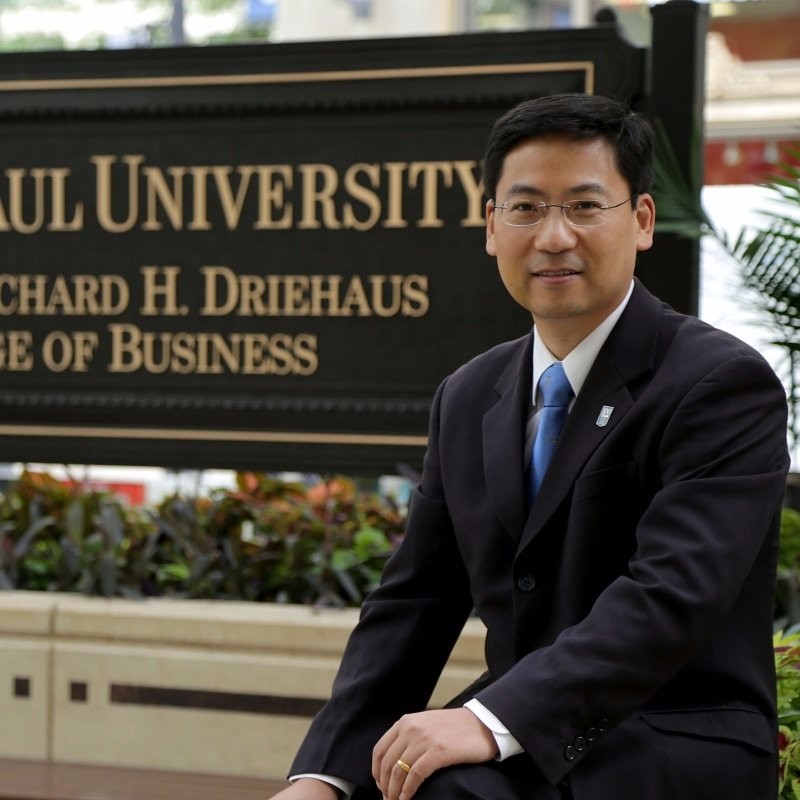 The Wall Street Journal recently named supply chain management as one of the hottest career fields for business graduates. Professor Bin Jiang has been at the forefront of supply chain research and teaching for nearly a decade at DePaul.
The Wall Street Journal recently named supply chain management as one of the hottest career fields for business graduates. Professor Bin Jiang has been at the forefront of supply chain research and teaching for nearly a decade at DePaul.
Jiang, who has received numerous honors for his work, including a prestigious best paper award from the Academy of Management, explores in his research the role of outsourcing and ethical issues involved in global supply chains.
Because of his outstanding research and classroom contributions, Jiang was chosen this fall to be the inaugural Driehaus Fellow. The fellowship is named for DePaul business alumnus Richard H. Driehaus, who donated $30 million to DePaul's business school in 2012 to support the hiring and retention of stellar faculty like Jiang.
Jiang received his PhD in Operations Management from the University of Texas at Arlington and his MBA in International Business at the University of Southern California.
Below, Jiang discusses the fellowship and why he chose to study and teach outsourcing.
What is your specialty in management and why did you choose it?
I specialize in outsourcing, which has emerged as one of the most important and popular competition strategies. China is becoming the most important and popular destination for outsourcing. Having worked in China for over 16 years, I have a lot of practical, hands-on and industrial experience. Therefore, I took advantage of the accessibility of empirical data in China to study outsourcing management.
Why did you decide to focus on supply chain management?
In this globalization age, business competition is not between company and company, but between supply chain and supply chain. To compete well in the market, a company has to manage not only its organization, but also its supplier and its customers, or even its supplier's supplier and its customer's customer. A company's competitive strength doesn't depend on its own advantage, but the strength of the weakest link along its entire supply chain. Because supply chain management is extremely interesting to industrial practitioners, I focus my research on it.
How important is research to your teaching?
To educate current business college students, who will be tomorrow's managers, business professors really have to understand what practitioners do. However, what the practicing community is already doing may not be the best that can be done. Therefore, academicians should do research to reveal meaningful insights about real practices, and then provide directions for making rational decisions or improvements. By instilling their research into their teaching, business professors can keep their students ready to make a difference to the dynamic business world.
How long is your Driehaus Fellowship and what do you plan to do as a fellow?
My fellowship lasts five years. The Driehaus Fellowship means a new summit in my career. Thus far, I have been at different summits in my career. I was the (international) winner of Emerald/EFMD's (European Foundation for Management Development) outstanding doctoral dissertation. I was the best-paper winner of the best journal in my discipline. I was promoted from a freshly minted PhD to a full professor in eight years… When I was at different summits, I found their magnificent views were always the same: new summits I never dreamed of emerging over the horizon. I was never excited by the height of the summit I had conquered, but by the distance I would cover to the next summit. With the Driehaus Fellowship support, I am going to explore underdeveloped but important research into post-outsourcing management. My future research will continue to enhance the reputation and prestige of DePaul among academics.
The Driehaus Fellowship, as ever, inspires me to dream more, learn more, do more and become more at DePaul.